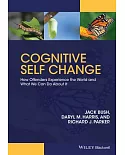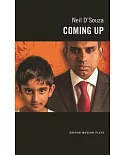Over the past three decades, the American criminal justice system has become unapologetically punitive. High rates of incarceration and frequent use of long-term segregation have become
commonplace, with little concern for evidence that such practices make the public safer - and as the editors of this groundbreaking volume assert, they do not.
Bringing together experts in the fields of social science, forensic psychology and criminal justice, Using Social Science to Reduce Violent Offending addresses what truly
works in reducing violent offending. Promoting an approach to correctional policy grounded in an evidence-based and nuanced understanding of human behavior, leading authorities from the United
States, Canada, and Great Britain offer specific and practical strategies for improving the criminal and juvenile justice systems. Beginning by covering the history and scope of violent crime
and incarceration in the U.S., this pioneering volume offers clear and practical recommendations for implementing approaches focused on behavioral change of even the most particular offender
groups, such as juvenile offenders, sexual offenders, and offenders with mental illnesses. The authors argue for a more scientifically informed justice system, one where offenders-through
correctional approaches such as community-based treatments and cognitive behavioral interventions-can be expected to learn the skills they will need to succeed in avoiding crime upon release.
Authors also highlight methods for overcoming system inertia in order to implement these recommendations. Drawing on the science of human behavior to inform correctional practice, this book is
an invaluable resource for policymakers, practitioners, mental health and criminal justice professionals, and anyone interested in the science behind the policies surrounding criminal
punishment.





















